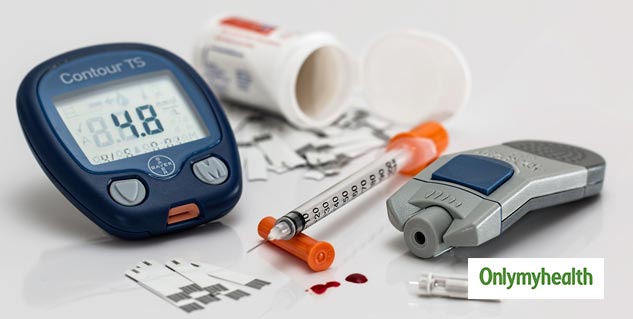
Diabetes, particularly Type 2 diabetes, is a widespread health concern affecting millions globally. While it was once viewed as a lifelong condition requiring strict management, emerging evidence suggests that it can be reversed, albeit with dedication and lifestyle modifications.
Table of Content:-
Talking along the lines, we asked Dr Shrey Srivastav, General Physician, Sharda Hospital, if diabetes can be reversed and if there are any strategies that help the process and here is what he shared with us.
"It's important to understand that reversing diabetes does not equate to a cure. Instead, it involves effectively managing blood sugar levels to the point where medications may no longer be necessary," Dr Srivastav explained.
Effective Strategies for Reversing Diabetes
Let's explore the strategies and lifestyle changes that can contribute to the reversal of diabetes, according to Dr Srivastav:
1. Low-Calorie Diet
One of the primary approaches to reversing diabetes involves adopting a low-calorie diet. By reducing caloric intake by 500-750 calories per day, individuals can effectively manage their weight and improve insulin sensitivity. Consuming between 1,200-1,500 calories daily, focusing on nutrient-dense foods such as fruits, vegetables, lean proteins, and whole grains, can lead to significant improvements in blood sugar control over time.

2. Exercise
Regular physical activity is key to reversing diabetes. Aim for at least 10,000 steps per day and incorporate a minimum of two to three hours of moderate exercise each week. Exercise helps lower blood sugar levels by increasing insulin sensitivity, allowing cells to better utilise glucose for energy. Additionally, it aids in weight loss and improves overall cardiovascular health, reducing the risk of complications associated with diabetes.
3. Weight Loss
Shedding excess weight is a critical aspect of reversing diabetes. Aim to lose around 10% of your body weight within the first month of implementing lifestyle changes. This significant reduction can lead to improvements in insulin sensitivity and glycemic control. Additionally, maintaining a healthy weight lowers the risk of developing complications such as heart disease, stroke, and kidney disease associated with diabetes.

4. Intermittent Fasting
Intermittent fasting has gained attention for its potential benefits in reversing diabetes. By restricting eating to a specific window of time, typically 14-16 hours fasting followed by an 8-10 hour eating window, individuals may improve insulin sensitivity and promote weight loss. Fasting periods allow the body to utilise stored glucose and fat for energy, helping to regulate blood sugar levels more effectively.
5. Bariatric Surgery
In cases of extreme obesity where other interventions have been ineffective, bariatric surgery may be considered as a treatment option for reversing diabetes. This surgical procedure can lead to significant weight loss and improvement in metabolic function, often resulting in remission of diabetes. However, it's essential to discuss the risks and benefits with a healthcare provider and explore other lifestyle modifications before considering surgery.
Bottomline
While reversing diabetes is achievable for many individuals, it requires a comprehensive approach involving dietary changes, regular exercise, weight management, and possibly medical interventions. By diligently managing blood sugar levels within target ranges and adopting a healthy lifestyle, individuals with diabetes can improve their overall health and reduce the risk of complications. It's essential to work closely with healthcare professionals to develop a personalised plan that addresses individual needs and goals. With commitment and perseverance, diabetes can be effectively managed and even reversed, empowering individuals to live healthier, more fulfilling lives.
[Disclaimer]: The content herein is sourced from a licensed healthcare professional and serves purely informative purposes. We strongly recommend seeking guidance from your healthcare provider for personalised medical advice.]
Also watch this video
How we keep this article up to date:
We work with experts and keep a close eye on the latest in health and wellness. Whenever there is a new research or helpful information, we update our articles with accurate and useful advice.
Current Version